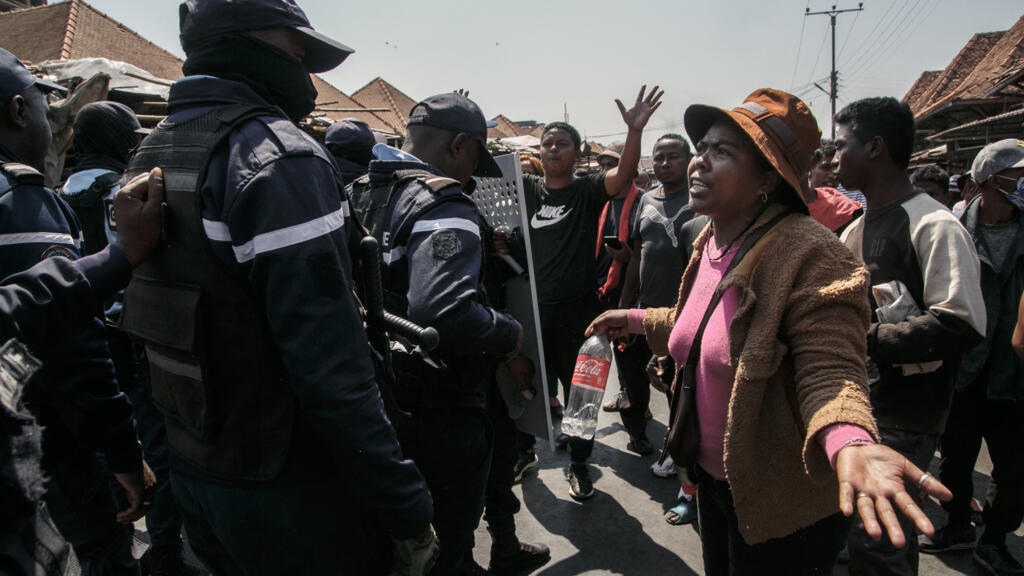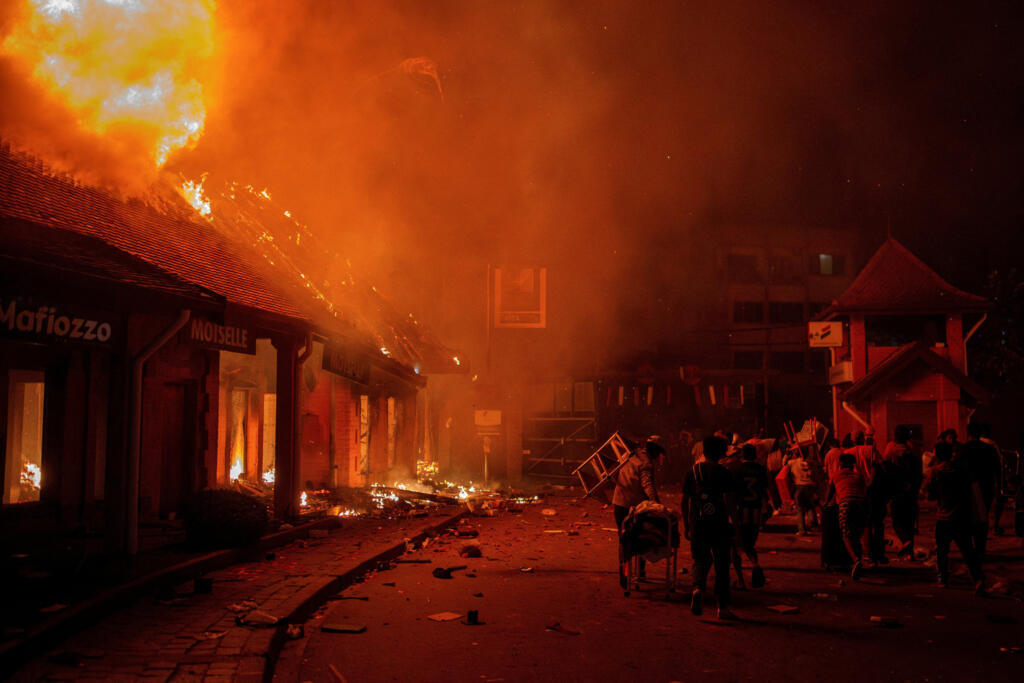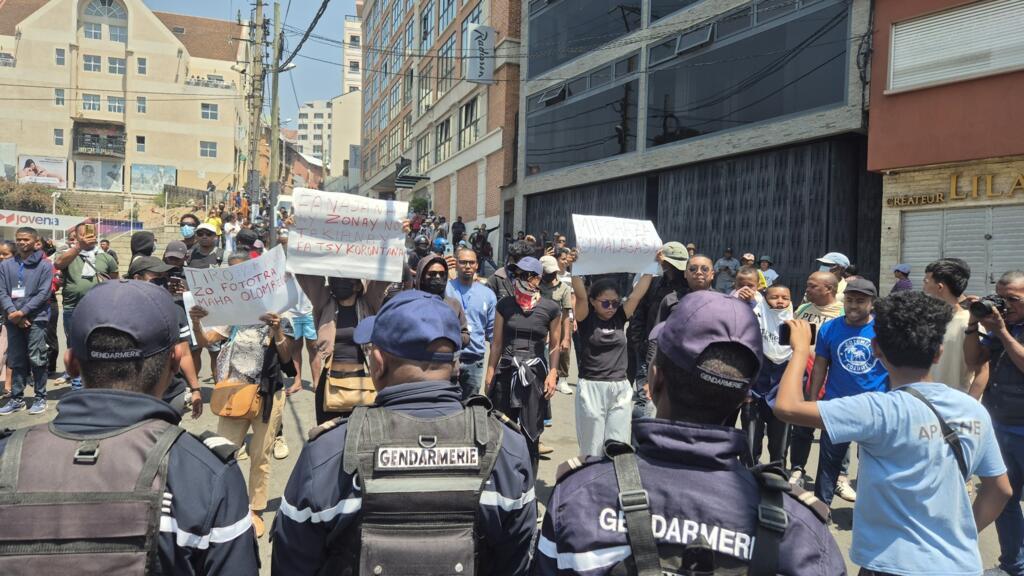
Anger over chronic water and electricity shortages has exploded into deadly unrest in Madagascar, prompting a night-time curfew in the capital. At least five people were killed in mass protests in Antananarivo on Thursday, hospital sources said.
Despite the curfew, demonstrators built barricades of burning tyres and rubbish and ransacked shops. Cable car stations were also attacked as unrest spread through the city.
RFI correspondent Guilhem Fabry reported that loud blasts were heard near the city centre until about 2am on Friday and that a strong smell of smoke hung in the air.
Authorities have imposed a curfew in Antananarivo from 7pm to 5am, saying it will stay in place “until public order is restored”.
Schools across the capital and nearby districts were closed on Friday, and the suspension was extended to the city of Antsirabé, where clashes also broke out.

Energy crisis looms large as Macron makes rare visit to Madagascar
Tear gas, rubber bullets
Thursday’s protests in Antananarivo, which began as peaceful marches, were met with tear gas, rubber bullets and large numbers of police.
What started as demonstrations against the shortages quickly escalated into one of the biggest challenges faced by President Andry Rajoelina in years.
Hundreds of people tried to reach central Ambohijatovo Square despite a government ban on gatherings, but were blocked by heavy security.
Protesters split into smaller groups to get around the cordons, carrying banners denouncing the outages and accusing the government of failing to guarantee basic rights.
Police fired tear gas and rubber bullets as masked officers charged the crowds.

Online mobilisation
Two lawmakers have reportedly had their homes vandalised, including senator Lalatiana Rakotondrazafy – a former minister and vocal supporter of Rajoelina.
Addresses of pro-government figures had been widely shared on social media, amid massive online mobilisation.
While most of the posts called for peaceful protests, some included addresses of officials to "target" or even DIY guides for making explosives.
Security forces claim that bad actors are taking advantage of the protests to destroy property, while legislators have tried to frame the movement as a plot.
Ahead of Thursday's protests, 13 out of 18 senators denounced what they called an "attempted coup d'état" by the opposition.
Rajoelina has yet to address the situation. Having spoken at the UN General Assembly in New York earlier in the week, it remains unclear whether the president has returned to Madagascar.
He first came to power through a coup in 2009, before going on to win presidential elections in 2018 and 2023.
Andry Rajoelina re-elected Madagascar president: poll body
Persistent shortages
Only around a third of Madagascar’s 30 million people have access to electricity, according to the International Monetary Fund. Power cuts often last more than eight hours a day.
Poor governance of the state-owned utility, Jirama, is at the heart of the problem and for months there have been protests outside their headquarters in Antananarivo.
Madagascar is one of the poorest countries in the world, with 75 percent of people living below the poverty line.
Yet Jirama uses up 10 percent of the state's revenue. Critics point to mismanagement and corruption as key factors behind the company's failings.







